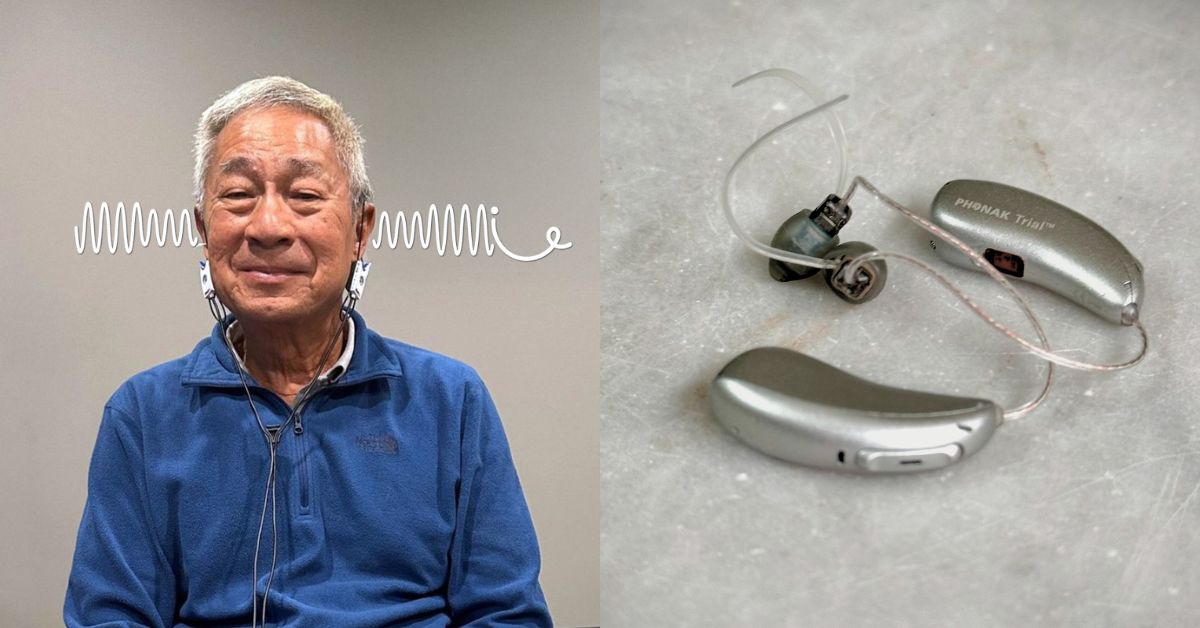
What did you say? What? WHAT??? This is what I usually say to my wife, and she replies, “You are deaf, lah!” And it falls on deaf ears, literally.
I am exaggerating a bit of course, but mild hearing loss was something that crept up on me over the years, unnoticeable to me but not to my wife.
My wife usually complains that my TV volume is too loud. I always maintained that it is not my fault that the explosions and action scenes are loud, when the dialogue volume is just right.
Nobody complains about this in the cinema. In fact, they call this the Dolby effect. It was called Sensurround in the early days and people pay more for this. Yet the same movie watched at home is too loud that “neighbours can hear”. Solution? Headphones.
Similarly, I watch videos on my laptop or my handphone with earphones too. Nice.
Wife also complains that I did not answer her questions correctly.
Nag. Nag. Nag.
Ignore. Ignore. Ignore.
One day, I saw an advertisement for free basic screening for eyes, ears, and teeth for silvers at a community club in the neighbourhood. Since it was free, I decided to get tested. Expectedly, it was found that my hearing was not good, and I was referred to a mobile hearing clinic nearby for $5.
Advertisement
This time, I was tested by an audiologist in an acoustic booth, who confirmed that I have mild hearing loss. She referred me to an ENT (Ear, Nose and Throat) specialist at a government hospital at a subsidised rate, which is the same rate as if I were referred by a Polyclinic.
The ENT specialist confirmed that my hearing loss was not due to some temporary ear infection or illness, but due to a normal ageing process, and it will get progressively worse. He was informed about my loud TVs, earphones and headphones habits, and suggested that I look into hearing aids instead to help me with hearing.
Hearing aids for mild hearing loss
Shortly after that, we went to the US to visit our daughter and grandchildren. Our daughter is an audiologist, but I have always refused to be tested by her. This time around, my wife shared with her the findings of the ENT specialist, and she dragged me (almost screaming and shouting) to her clinic, tested my hearing, and fitted me with a set of hearing aids.
I also had to endure lots of nagging, this time from my daughter, about wearing the hearing aids at all waking hours for at least the first week so that the brain could adjust to louder but clearer hearing.
On the first day of wearing the hearing aid, there were lots of things to get used to. Things sounded different – echo-y, tinny, artificial – and it was very overwhelming. Each time I try to remove it, I get nagged by my daughter with her eagle eyes. With each passing day, the brain adapted to the new feedback received, and by the fourth day, it was fine.
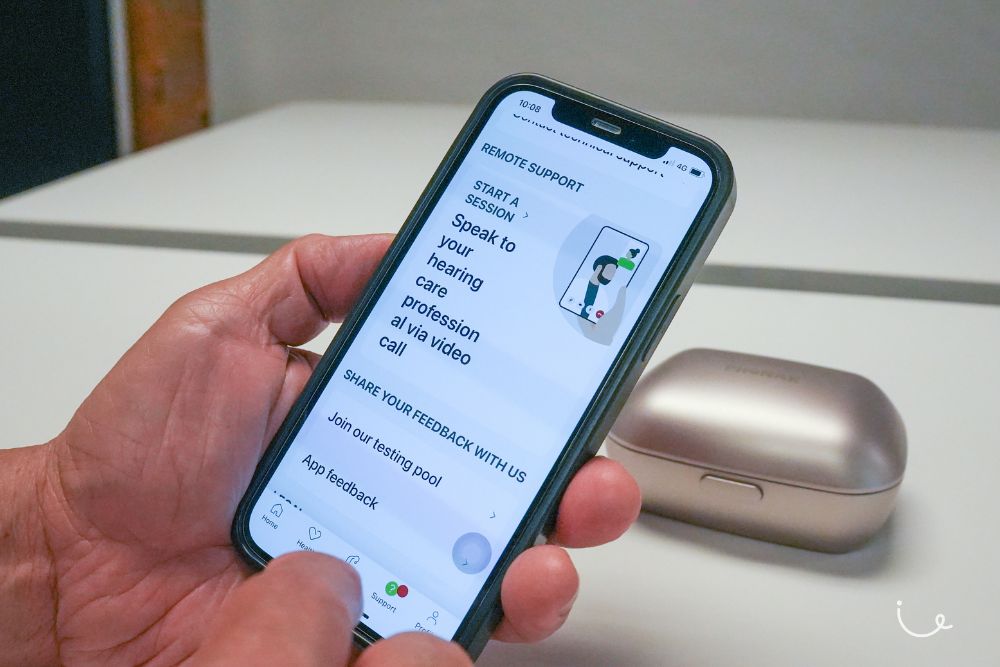
My hearing aid is programmed via her computer, and is also linked to an app in my handphone. This is very useful as I can adjust my hearing aid with the app, but once I remove it for the day and put it on the charger, it reverts to the default mode set by the computer. If I find it too noisy, I can bring the volume down to a comfortable level, inform my daughter accordingly, and she will update her programme.
However, my daughter also told me that bringing the volume down too much would defeat the purpose of the hearing aid, so there was a discussion, a compromise, an adjustment period, and I felt that my investment in her education was worth every cent.
Adventures with the hearing aid
It’s actually my left ear which has mild hearing loss, my right side is fine. My theory for this is that my wife sits on my left when I drive. My friends with partial hearing loss are also more affected on the left side than the right. If my theory is correct, the American men will have their hearing loss on the right side more than the left.
With my right ear fine, I find that I can still hear normally, but my wife disagrees and asserts that my hearing has improved with the hearing aid. My daughter’s view is that the hearing aid helps me to hear both sides equally, so I can now tell which direction the sound comes from. This is particularly important when I am walking around and able to hear which direction the sound comes from, or where my wife is calling me from.
Nowadays, I do still need to tell people to repeat what they are saying even with my hearing aids on. My conclusion is that they are now speaking badly, not enunciating their words, and mumbling a lot. I do not seem to have a problem watching the news on television without my hearing aids, on normal volume, and my wife sitting next to me, because they speak clearly.
There are times when I am not wearing the hearing aid while my wife is talking to me. I would then hear wrongly, and she would ask, “Are you wearing your hearing aid?” If the answer is negative, I get an earful, and not wearing a hearing aid helps.
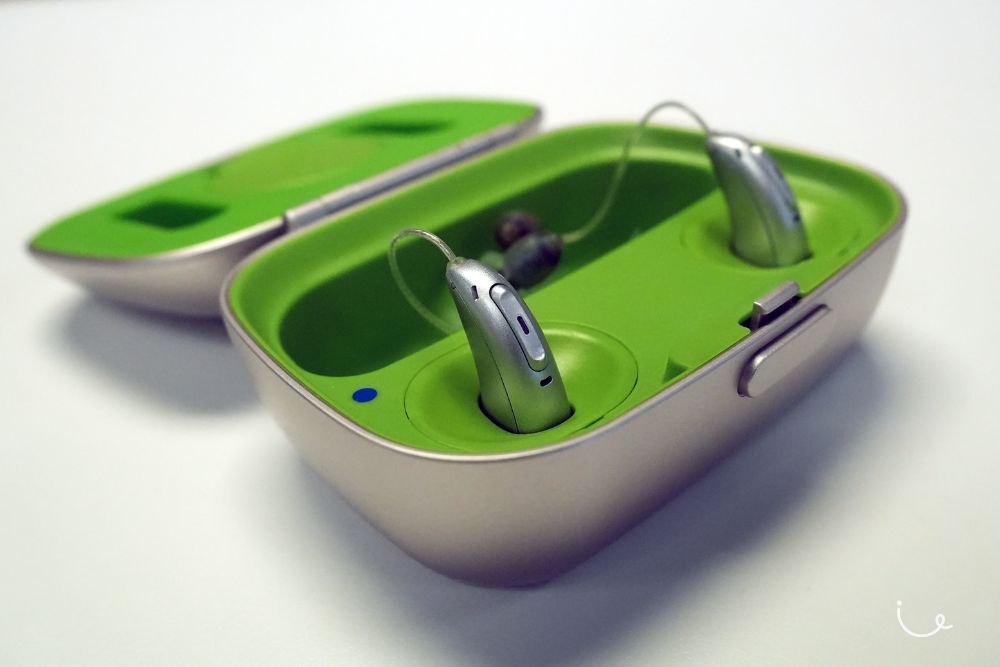
There are times when I accidentally didn’t charge my hearing aid due to improper placement. I would still wear my hearing aid, and when I could not hear my wife properly, she would again ask, “Are you wearing your hearing aid?” I would then point to my hearing aid, and say, “Maybe you are not saying it clearly enough,” with a little snigger in my voice.
Once in a while, I forget that I have my hearing aid on me and take a shower with it. I would be reminded of it by loud “swooshing” noises (of the water on the microphone) in the shower, resulting to me immediately jumping out of the shower to towel dry the hearing aid, praying that I did not drown it.
Do not take a nap with it, because you will hear all the noises your neighbour makes in the kitchen, in the toilet, in his conversation, and the loud rustling noises of the trees outside, etc. How to sleep like that?
Each time you wear it in the morning, it sounds very noisy until your first activity, like making breakfast, then you will not notice that it is there for the rest of the day. Removing it at night is really quiet and peaceful.
The usefulness of hearing aids in different settings
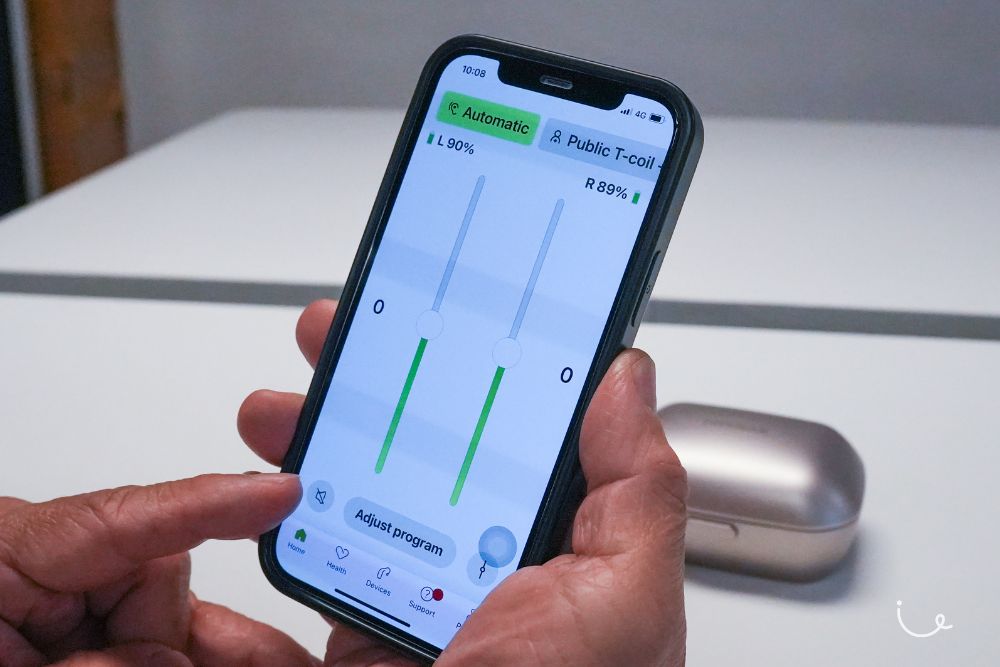
I am still discovering some features of the hearing aid via the app.
Initially, the individual volume control is very useful, to get a correct or comfortable balance which I am happy with. Then I have to discuss with the audiologist (my daughter) on my preferred setting, and she will give me her opinion based on my test reports. This setting is also useful when the music in the pub is too loud, but you still want to listen to people.
The feature I used the most is the “mute” button. My son-in-law calls it the “wife” button. I am not going to explain it here in case it gets me in trouble.
It is very useful when my wife and her friends are in the car, and the hearing aid is too effective. This is when I mute it. And when my wife sees me doing it, she will give me a slight smile, and continue talking with her friends. Another time when I use it is when I go for a walk in a park, and the wind blows, and I get the “whoose, whoose” sound in the microphone.
There is a “Restaurant” feature that allows the microphone to zoom in on the person you are speaking to, and reduces the ambient noise around.
The “Public T-coil” feature allows a Bluetooth connection in a convention hall or a church that has a sign of an ear for the hearing impaired with hearing aids. It is very clear, as though you are wearing headphones.
My daughter discourages me from using the Bluetooth function for the TV or handphone, because she just wants me to live my life naturally without being too dependent on the special features of the hearing aid.
Thoughts on mild hearing loss and hearing aids
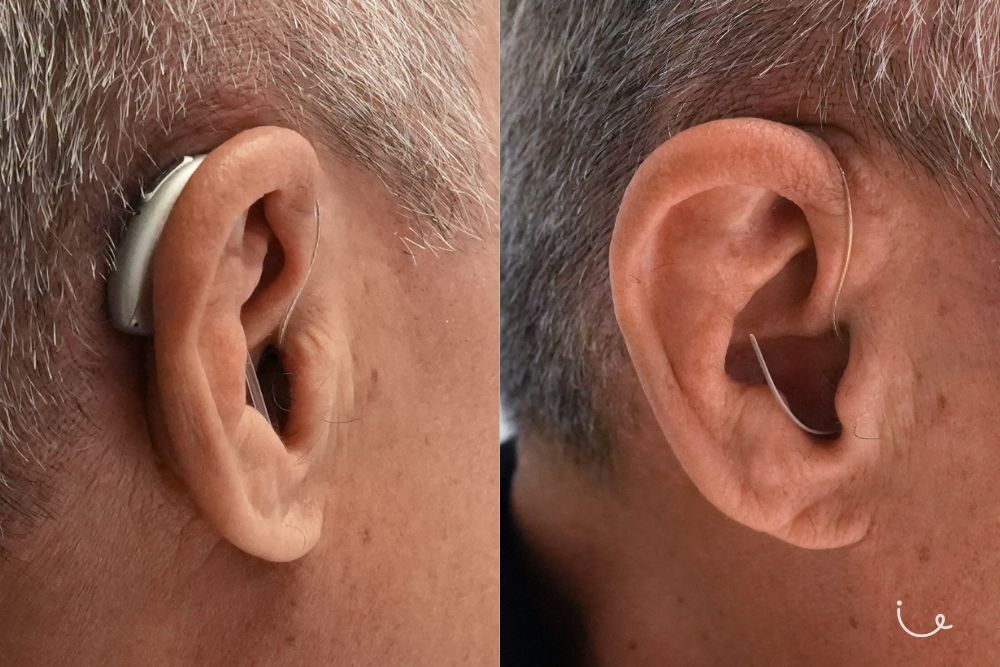
Hearing loss is part of the ageing process. It is likely to worsen when we get older.
Many seniors admit to having some difficulty in hearing but refuse to be tested and fitted with hearing aids for a variety of reasons. Some include I can still hear, it is very noisy, it is uncomfortable having something in my ear, it is expensive, my friend says it is useless, etc.
My view is that it is like wearing spectacles for the first time. It is uncomfortable to have something on your nose, may give you a headache initially, and is expensive. But if you persist over the first few days, your brain will tune to it, you will see clearer, and very soon, you will be happy with it as it improves your quality of life.
Same for hearing aids. Get tested. Some audiologists even let you try on a set of hearing aids for a trial period, for you to experience the difference it makes to your quality of life.
Just like a pair of spectacles, it is easier to get used to it from when your eyesight is not so bad compared with getting it later, when the adjustment required is more drastic. So getting a hearing aid earlier helps with the adjustment process, which can be re-programmed when we age and hearing loss worsens.
For me, the factor that sold me on hearing aids is that research shows that hearing loss is one of the factors that lead to dementia, because we tend to shut our minds off when we cannot hear, leading to a less active mind.
I also think I look hip with it because everyone around is wearing earbuds or Airpods, except that mine is like a Ferrari among them in terms of price and performance.
Disadvantage? I cannot pretend that I could not hear anymore.





